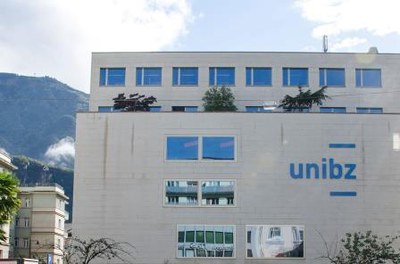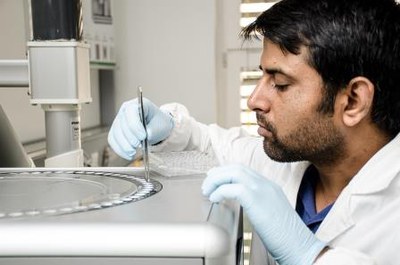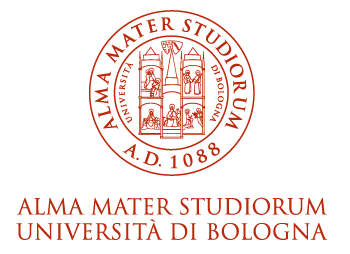Discover information regarding the third semester specialization in Bozen.

The third semester is offered at the Free University of Bozen-Bolzano, a young higher education institution with an international and multilingual profile (16% foreign students; 35% foreign teaching staff), with the contribution of the University of Bologna, well known for its long tradition in higher education.
This semester focuses on the sustainable production of fruits and grape, and on their supply and processing chains.
The Program takes advantage of the collaboration with the strong fruit and wine industry of South Tyrol, a worldwide-recognised leading district for apple and wine production, as well as with other local research Institutions.
Horticulture provides society with vital and nutritious fruit, consumed fresh or processed, that are the backbone of a healthy diet and improve our well-being. The new challenges of producing, storing and marketing fruit commodities in a more sustainable way, calls for a new generation of professionals equipped both with technical skills and capable of holistic thinking to successfully tackle the growing complexity of food production in a globalized market.
CONTACTS
Prof. Carlo Andreotti (carlo.andreotti@unibz.it) – professor, academic coordinator for unibz
Dott. Francesca Galeotti (francesca.galeotti@unibz.it) - Administrative Manager
|
Third Semester (September-December) |
ECTS |
|
Production chain management |
12 |
|
Integrated orchard and vineyard management |
6 |
|
Module 1: Canopy management |
|
|
Module 2: Soil and water management |
|
|
Mineral nutrition |
3 |
|
Applied entomology in horticultural crops |
3 |
|
Post-harvest chain management |
9 |
|
Supply chain and innovation management |
3 |
|
Fruit processing |
3 |
|
Post-harvest management |
3 |
Canopy management (Integrated orchard and vineyard management) (C. Andreotti) - The course provides students with scientific and technical knowledge on the canopy management of orchards, vineyards and nurseries. Students will understand and critically consider the main factors involved in canopy architecture and its management, allowing them to adapt this knowledge to specific environmental and agricultural conditions for improving yields and fruit quality.
Soil and water management (Integrated orchard and vineyard management) (D. Zanotelli) - The course allows the students to use the available scientific knowledge and the modern technical tools to improve the management of ground cover, irrigation and fertiliser supply, in order make the best use of the natural resources and enhance soil fertility. Students will be able to adapt the management techniques to different environmental and cultural conditions in orchards and vineyards.
Mineral Nutrition (S. Cesco) - The course aims at improving the knowledge about the mechanisms underlying the soil availability, root uptake, translocation and allocation of mineral nutrients in fruit tree crops. This knowledge allows the management of the fertilization practices in orchards according to the physiological needs of plants.
Applied entomology in horticultural crops (S. Angeli) - By the end of the course, students will acquire knowledge that enables them to: identify the key pest insects of the major horticultural crops and small fruit crops; understand the pest complexes of the agro-ecosystems; have a broad idea of chemical ecology and tritrophic interaction amongst host plants, pests and their natural enemies; plan a monitoring program for pest insects; link sustainable agriculture with pest control; understand the position of IPM in fruit cropping systems, with traditional and alternative control measures.

Post-harvest chain management
Supply chain and innovation management (C. Fischer) - Supply chain management (SCM) is concerned with the coordination of the physical flow of goods and services across distance, time and different types of organisations. In this course, SCM is approached with a focus on (industrial, or business-to-business) marketing, strategic management and transaction cost economics, all centered on the fruit industry. The course offers an introduction of the topic and aims at providing the participants with a basic understanding of the issues involved, as well as concepts and methods, so that they can apply them in their future occupations. In addition, the participants will learn, and be able to apply, the basics of innovation management, in particular collaborative innovation activities throughout the supply chain.
Fruit processing (M. Scampicchio) - The course provides specific knowledge necessary to identify and understand the key processing steps occurring in fruit processing. In particular, by the end of the course, the students will be able to: 1) describe the main steps required to produce processed fruits (such as cloud/clear juices, nectars, puree, jams, jellies and marmalades, ciders and distillates) and link them with the main unit operations characterizing hot and cold technologies used in fruit processing, including washing, peeling, enzyme treatments, pasteurization and sterilization; 2) evaluate the mass and energy balance of the main fruit transformation processes; 3) understand the main chemical and microbial changes occurring to processed fruits, such as pectin jellification, yeast fermentation, enzymatic browning, juice sedimentation and the microbial thermal death.
Post-harvest management (to be assigned) - The course will provide the students with technical knowledge about 1) fruit quality characteristics for optimum post-harvest life; 2) post-harvest handling, 3) modern post-harvest techniques and procedures and 4) fruit sorting and transportation. Students will be also able to recognize and control main post-harvest diseases and physiological disorders.
|
Optional course 1 - Plant protection and disease management |
9 |
|
Plant protection products and residues |
3 |
|
Elements of chemistry and biochemistry of agrochemicals |
3 |
|
Integrated plant disease management |
3 |
|
Optional course 2 - Efficient resource use in production systems |
9 |
|
Project development and management |
3 |
|
Applied breeding and sustainability |
3 |
|
Information and DSS in fruit production |
3 |
